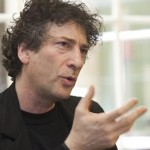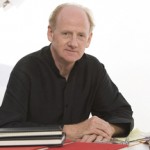“Talent doesn’t exist. Talent is nothing. It’s all about what you do, how you work, how you dive into the process.” That was Ben. (It may still be Ben.) He was learning to love his trombone in a Jazz Performance program at Montreal’s McGill University.
“Listen, you’re right, process matters, it’s great to focus on what you can control. But you don’t believe in talent? You’ve never coached basketball, that’s for sure.” And that was me, his teacher-coach father.
This was a conversation that lasted hours, across several days and venues. I, of course, was the voice of balance and reason in the face of Ben’s extremist argument. Because every athletic coach knows this: if you’re gonna make rabbit stew, you’d better start off with some rabbits. Some kids you can teach for a week and they can do it slowly, and some are at high speed after 15 minutes. Everybody knows this, right? So maybe my argument was dispassionate, based on grey hairs and considered experience. And perhaps it wasn’t, always, because I was interested in reminding my boy that he was talented (always different from “skilful”), and I might also have been nurturing a niche or two of my own where I doggedly hope that there’ll be some natural flow and not all hard work. (See “Writing”.)
Surprised as I was by his “naïveté”, I was moved by his argument. It made sense, given his position: you’ve been accepted into a prestigious program after auditioning; you are what you play, so thinking about “natural ability” is distracting at best, corrosive at worst; and besides, the only thing you can control is your level of effort and quality of focus. I got that. It’s one of those beliefs that, regardless of its level of absolute truthfulness, is just useful to believe. It’s forward-looking, it’s practical, and it gives the person seeking mastery the permission to keep on looking. Good.
All of which reminded me that I hadn’t gotten ‘round to reading something all educators should (even if they don’t speak math), as should any who like to think about human potential and barriers to its expression. John Mighton, a Canadian writer and educator, came out with The Myth of Ability: Nurturing Mathematical Talent in Every Child in 2003. Just as I had with Ben, I was dubious about Mighton’s egalitarian premise but excited about the possibilities it opened.
Mighton loved mathematics as a child, but left it behind in discouragement before he left high school. He went on, doggedly, to teach himself to write, which he did well enough to win a Governor General’s Award (Canada’s top literary prize) as a playwright. I’d heard about the book – a new approach to teaching math to kids – but I was at least as interested in the author, and his odd movement from writing for the stage to a belated doctorate in mathematics. He examined the systematic approach he’d taken to writing, and applied it to the rekindling of a stifled earlier love. He became an adult math prodigy, and he watched carefully how he did it and why it had taken him so long.
And along the way, he began volunteering to teach the “unteachable”, those kids – often from underprivileged and undereducated backgrounds – who had fallen “hopelessly” behind in their numeracy. He started with Lisa, a sixth-grader operating at about a grade one level; she was unable, for example, to count by twos to ten. Using the basics of what became the JUMP (“junior undiscovered math prodigies”) method – rigorously defined teaching by clear and tiny steps, coupled with dollops of unremitting praise – Mighton helped her to the point where she could pass grade 9 high school math at the academic level. It was the first of many remarkable success stories.
He’s convinced that the teaching of mathematics is rife with false ideas, chief among them the elitist notion that only a few students can be expected to excel in it. And, though he argues this rather gently, that it is poorly taught, based on the expectation that most will eventually fail anyway. Teachers, especially at the crucial elementary levels, either are among those who picked it up easily (and therefore unconsciously expect that everyone should do the same) or those whose own mystification with mathematics made them rather phobic about it. (Mighton doesn’t ask this, but I do: how many primary- and junior-level teachers actually like mathematics? Having trained as one, my unscientific answer is: not many.)
Everybody can learn mathematics. (There, I gave away the ending.) Mighton is evangelical about this message; it’s an educational call to arms, and an emphatically political one. The Myth of Ability takes the principle of democracy and slams it down into every grade school classroom in his province (Ontario) and beyond, arguing forcefully that it is deeply ingrained prejudice that makes us think that only the few can possibly have had the magic fairy dust of mathematical potential sprinkled upon them. (It reminds me of another bit of widely believed exclusivity: that art and creativity are only permitted to the rarely gifted, when what is really needed are the means, the time, and the confidence.)
To a man with a math obsession, of course, perhaps every problem looks like innumeracy: “more than half the world’s children still live in abject poverty. In affluent countries, violence, overconsumption and the destruction of the environment continue….Children who grow up…meeting only a fraction of their potential, unable to reason clearly or weigh the consequences of their actions…will be exploited and misled with ease by corporations and politicians…” Hyberbolic? Perhaps. Mighton is a mighty believer in the power of education, that good teaching and constant encouragement are the antidotes to apathy and failure. He writes: “If children in any part of Canada were being starved to the point where they looked like famine victims, people would demand that they be fed. But children regularly graduate from our schools after reaching only a fraction of their potential. Why do we tolerate this vast loss of potential…?….We must all believe, on some level, that these children are not being starved, they are simply incapable of eating.” Mighton has proved to himself, and the JUMP program seeks to demonstrate to more and more schools, that the great majority of young can not only eat math but love it, too.
It’s a challenging thesis, but a painless read. He writes clearly, engagingly, and concisely. Mighton tells his story, outlines the development of JUMP and pleads for a more challenging (yet more equitable) approach to education in well under 100 pages. (In fact, if you’re as lazy as me, you can skip the entire second half of the book, in which he reprints selections from the JUMP manual, from teaching fractions to something called “finite state automata”. Good thing I’m not getting paid for this review!) The Myth of Ability is a small but potent package, and well worth the read for anyone who believes – or wants to – in the importance of education and the undiscovered country of human potential. at times I felt that Mighton might slightly overstate his case, although he does not suggest that there aren’t inborn differences in ability. I think, though, that my “talent is nothing” son Ben would approve. He would nod furiously at Mighton’s title, that’s for sure.




